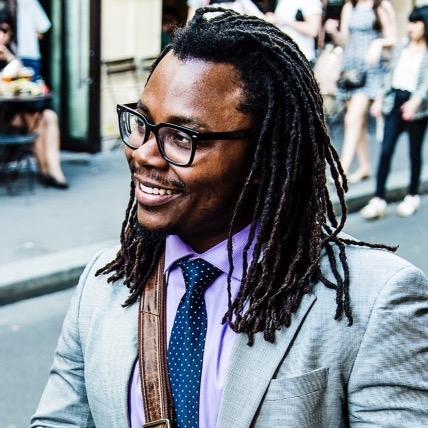
Before coming to law school, Emahunn Campbell had already worked to free a wrongfully-incarcerated man.
Emahunn Raheem Ali Campbell had moved to Massachusetts to pursue his Ph.D. in Afro-American studies when he, along with other activists, started a western Massachusetts chapter of Students Against Mass Incarceration. The group, and Campbell, were advocating for a man named Charles Wilhite, who was in prison for a murder he said he didn’t commit.
“We were holding community rallies and panels. We were also reading depositions. We had no legal training at all. We were pointing out discrepancies we had found. We weren’t getting paid or anything. It was something we felt passionate about,” he recalled.
Through their work, the group was able to get a new trial for Wilhite, where he was acquitted and subsequently awarded damages for wrongful imprisonment.
Though Campbell already had a successful career as a college professor and also had taught as a high school teacher, he said the experience working to exonerate Wilhite reinforced the idea that he should go to law school.
“I was six years old when I said I wanted to go to law school,” he recalled. “I just took this very long detour.”
Once he decided to go to law school, Campbell said he always knew he wanted to attend Rutgers. In 2012, he saw Professor Elise Boddie, then working as a litigator for the NAACP Legal Defense and Educational Fund, on a television show called Democracy Now and he emailed her about her work.
“I looked up Rutgers and saw there was a focus on social justice, plus its history after the ’67 riots. This is an institution that speaks to me,” he said.
Campbell drove from his home in Virginia to New Jersey to attend an open house for the Minority Student Program last November, which was his first time in Newark. While visiting, he met Deans Anita Walton and Yvette Bravo-Weber, and Professors Sahar Aziz and Boddie.
He said Boddie suggested he read the Bryan Stevenson book Just Mercy. Campbell said he read the book and knew he knew he definitely wanted to attend law school. A few days later he turned down an offer for a university teaching position and moved to Newark to join the incoming class in August.
“It’s been a dream come true for me,” he said. Campbell said he’s especially benefitted from the support and friendships he’s made with other MSP students.
He said he hopes to get involved in the clinical programs after his first year and a law journal. His goal is to work in civil rights or criminal justice reform, helping underrepresented and vulnerable communities.
Campbell said he’ll never forget the case in Massachusetts that inspired him, “It was so powerful. It helped instill in me that while law is about statutes and case law, it’s also about people on the ground. . . and the type of role we can play to bring about justice for people who are oftentimes on the back end of awful experiences.”